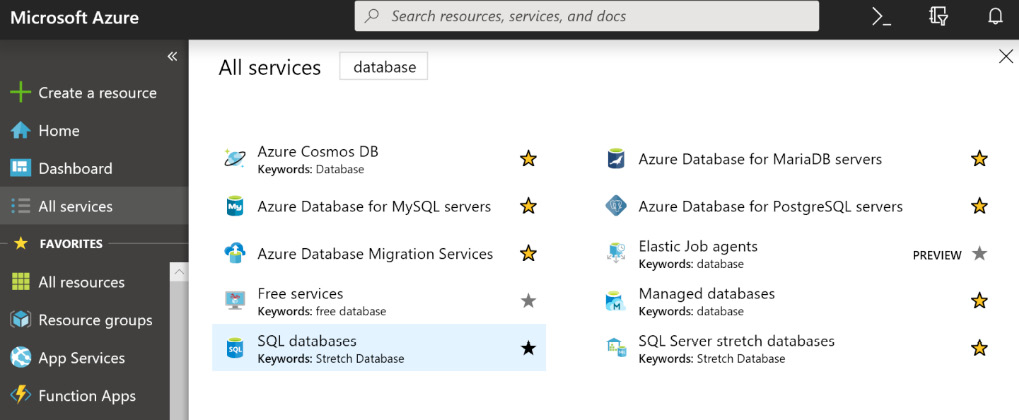Azure cloud services
A search for sql in the Azure portal provides multiple results. I have marked some of them to show the resources that can be used directly for OLTP applications:

Figure 7.1: List of Azure SQL services
Figure 7.1 shows the varied features and options available for creating SQL Server–based databases on Azure.
Again, a quick search for database in the Azure portal provides multiple resources, and the marked ones in Figure 7.2 can be used for OLTP applications:

Figure 7.2: List of Azure services used for OLTP applications
Figure 7.2 shows resources provided by Azure that can host data in a variety of databases, including the following:
- MySQL databases
- MariaDB databases
- PostgreSQL databases
- Cosmos DB
Next, let's discuss deployment models.



